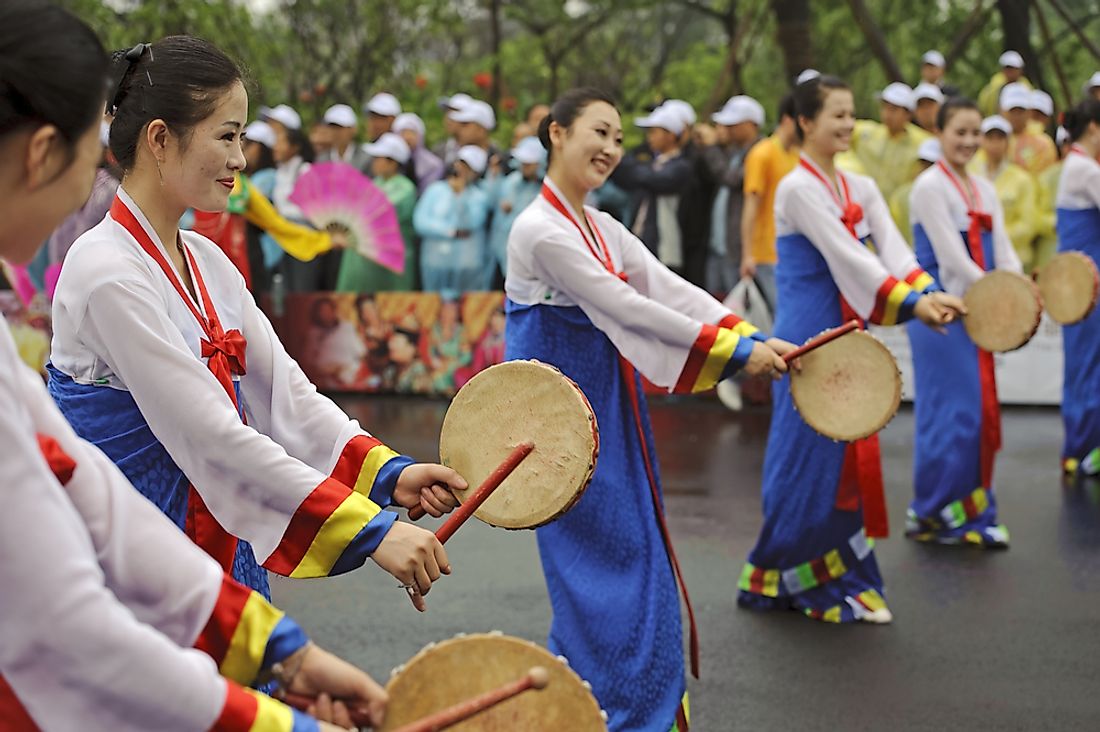Ethnic Groups Of North Korea

Koreans In North Korea
Under the Kingdom of Goryeo (918-1392), the Joseon Kingdom (1392-1897) and the Korean Empire (1897-1910), the country of Korea was a unified country. The Japanese invasion and occupation of Korea from 1910 until 1945 was the event that would eventually lead to a divided Korea. After Japan surrendered in World War Two in 1945, the Korean Peninsula got divided into northern and southern zones along the 38th parallel, with the north occupied by the Soviet Union and the south occupied by the United States of America. Due to Cold War politics, any hopes for an independent Korea faded and over the next three years in the Soviet north sweeping reform policies got enacted to support a communist government and socialist economy. In September of 1948, two months after the South declared statehood, North Korea was established, and Soviet forces withdrew from the country. Following the Korean War (1950-53), which resulted in a military stalemate, North Korea, and South Korea have had an extremely icy and hostile relationship.
In the late 1970's North Korea cut off ties with China and with the collapse of the Soviet Union in 1991 they lost more support and aid. They have reestablished relations with China since, who are the North's major trading partner, but besides that North Korea is mostly isolated and hostile. In this climate, the hermit kingdom of North Korea has managed to become one of the least ethnically and culturally diverse countries on Earth. Due to its past, sanctions, isolation, and strict government, North Korea has basically no immigration, which keeps the country homogeneous and having little contact with outsiders. Due to these factors, North Korea has a population of slightly more than 24 million people, with over 99% being ethnically Korean.
Chinese In North Korea
Since North Korea is more than 99% ethnically Korean, other ethnic groups in the country are almost nonexistent. In North Korea's last census in 2008, only 0.002% of the population was listed by the government as being non-Korean. North Korea has a small community of Chinese expatriates that numbered almost 15,000 in the late 1950s but shrunk over the following two decades as the government encouraged them to leave. Today it's estimated that the Chinese population in the country is between 4,000 to 10,000 people.
Japanese In North Korea
There are also a very small amount of ethnic Japanese in North Korea, most of who were the spouses of Zainichi Koreans, who emigrated from Japan to North Korea in the late 1950s and 1960s as part of a repatriation campaign. This repatriation campaign was soon stopped once information got back to Japan of the harsh conditions in North Korea. The rest of Japanese in North Korea are either defectors or kidnapping victims.
Russians And Americans in North Korea
There are also a few Russian-Korean repatriates, probably less than 10,000 people, mostly from the Russian island of Sakhalin, located north of Japan. After having to stay on the island following World War Two, due to the Soviet Union's lacking workers after expelling the Japanese population, some of these Russian-Koreans returned to North Korea in the late 1950s and early 1960s. North Korea also has a few defectors from other countries, like James Joseph Dresnok, who was one of six American soldiers who was known to have defected in the years after the Korean War.











